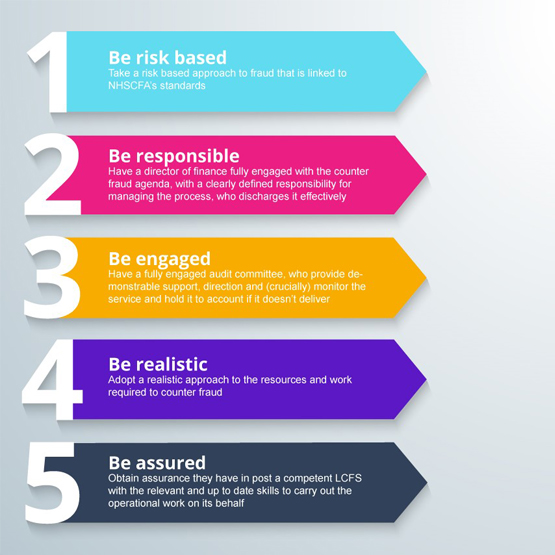Alumni story / What does a good counter fraud service look like?
The NHS Counter Fraud Authority is a relatively new organisation, so its chair, Tom Taylor, and I jumped at the chance when we were invited to speak at HFMA audit conference at the end of 2018.
The message that Tom and I wanted the audience to take away was simple: we need your help.
This is because, while the NHSCFA leads on the fight against NHS fraud, we cannot do it alone. We all use and benefit from the service the NHS provides and so we all suffer when fraud takes money away from where it’s most needed.
While we work with stakeholders like NHS England and the Cabinet Office at a national level, a partnership with colleagues in local NHS organisations is just as vital if we are going to make serious efforts to tackle fraud.
What immediately struck me as we started our presentation was how much of a community the audit committee chairs are. As Tom delivered the first part of our presentation and introduced the NHSCFA, his many years of experience as a senior NHS leader meant he was already well known to the group. This helped him get our message across that we want to work in partnership with health organisations.
My part of the presentation was more technical advice on the theme: ‘What does a good counter fraud service look like?’
Health organisations can obtain their counter fraud service in several ways: via a directly employed local counter fraud specialist (LCFS); a shared service arrangement; or an audit consortium. Each has its pros and cons, but in all cases, audit committees and finance directors must be able to judge the quality of the service.
I outlined five key attributes of an organisation that is able to assess whether its counter fraud service represents good value for money.
If all five considerations apply, then the organisation will be able to assess the value it is receiving. However, if any one of the five does not apply, there may be difficulties and the organisation may have much less assurance than it would like.
We all know the crucial role audit committees has in holding the organisation independently to account in ensuring that fraud, bribery and corruption are prevented or, if not prevented, properly investigated.
The NHSCFA is seeking to develop benchmarking reports for organisations to answer the question: what does a good counter fraud service look like? This will focus on performance under the ‘investigations, sanctions and redress’ area of our counter fraud standards.
Overall performance in this area is not as good as it should be, which can sometimes mean that organisations cannot obtain expected sanctions and redress as well as the deterrent effect that arises from the ensuing publicity.
The audit conference confirmed that there is an encouraging level of support for the partnership approach to tackling NHS fraud. Keeping those five attributes in mind for what makes a good counter fraud service will help us continue to make progress.
Related content
The Institute’s annual costing conference provides the NHS with the latest developments and guidance in NHS costing.
The value masterclass shares examples of organisations and systems that have pursued a value-driven approach and the results they have achieved.